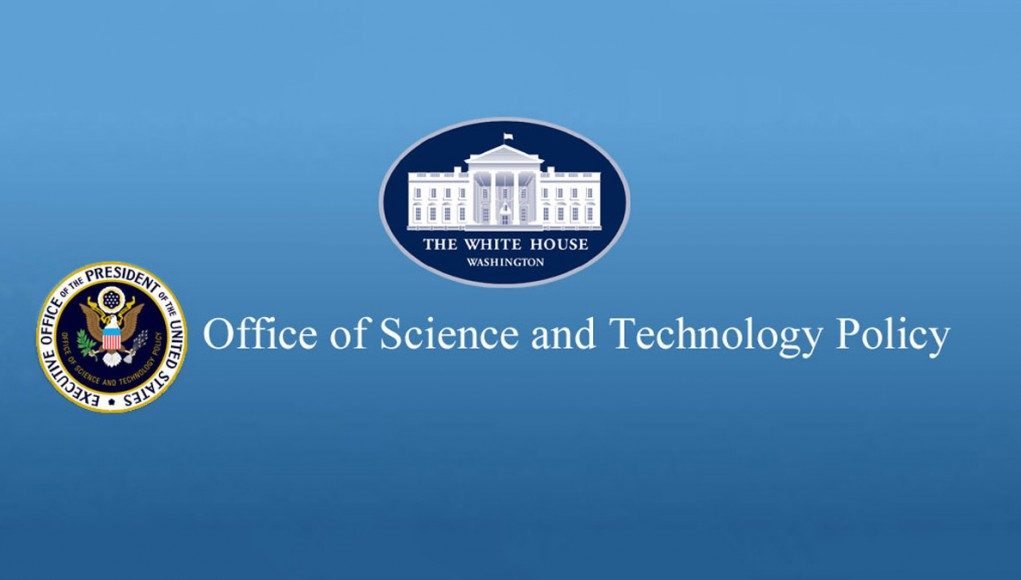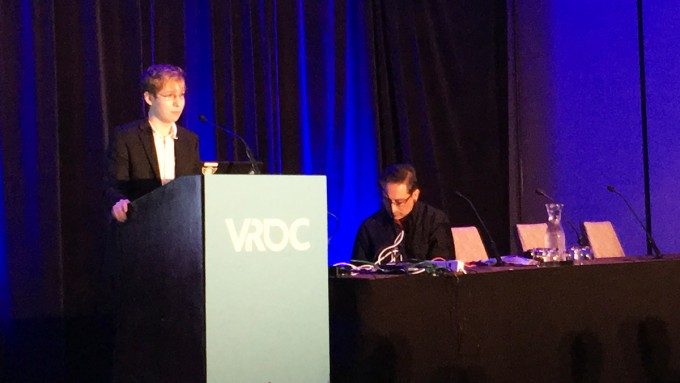Got an idea for how virtual reality could revolutionize education? The White House suggests six ways you could get funding to make it a reality.
Education is one of the most obvious use-cases for VR; its ability to immerse and engage gives it massive potential to revolutionize the way we teach future generations of students. But getting from the grand concept of ‘VR will be huge for education’ down to the nitty gritty of actually making it work practically for millions of students is a massive challenge. The White House sees the opportunity of VR in education and is encouraging innovators to turn opportunity into reality.
At VRDC 2016 this week, Erik Martin, Policy Advisor at the White House’s Office of Science and Technology Policy, took to the stage to explain the challenges of melding real education with VR, and also recommended six funding opportunities for those that want to take a crack at it:
Institute of Education Sciences – Small Business Innovation Research
Purpose: provides: up to $1,050,000 in funding to small business firms and partners for the research and development of commercially viable education technology products.
Point of Contact: Edward Metz, Ph.D.
SBIR Program Manager
Institute of Education Services
U.S. Department of Education
(202)-904-8972
Institute of Education Sciences – Grants
Purpose: to support research that contributes to school readiness and improved academic achievement for all students and particularly for those whose education prospects are hindered by inadequate education services and conditions associated with poverty, race/ethnicity, limited English proficiency, disability, and family circumstance.
Point of Contact: Edward Metz, Ph.D.
SBIR Program Manager
Institute of Education Services
U.S. Department of Education
(202)-904-8972
National Institutes of Health – Serious STEM Games for Pre-college and Informal Science Education Audiences
Purpose: to develop serious Scient, Technology, Engineering, and Mathematics (STEM) games with a focus on biology that addresses health and medicine questions for: 1) pre-kindergarten to grade 12 students and pre and in-service teachers or 2) Informal Science Education audiences
Point of Contact: Tony Beck
OSE/SEPA/NIH
(301)-435-0805
beckl@mail.nig.gov
National Science Foundation – Discovery Research PreK-12
Purpose: to significantly enhance the learning and teaching of science, technology, engineering, and mathematics (STEM) by PreK-12 students and teachers, through research and development of STEM education innovations and approaches.
Point of Contact: DRLDRK12@nsf.gov
(703)-292-8620
National Endowment for the Arts – Media Arts
Purpose: to support the development, production, and distribution of innovative projects that demonstrate media as art and media about the arts. Media arts, as defined by the National Endowment for the Arts includes screen-based projects presented via film, television, radio, audio, transmedia storytelling, as well as media-related printed books, catalogues, and journals.
Point of Contact: Lakita Edwards
National Endowment for the Arts
edwardsl@arts.gov
US Department of Education – EdSim Challenge
Purpose: The U.S. Department of Education calls for concepts for immersive simulations that transfer academic, technical, and employability skills. Successful simulations will pair the engagement of commercial games with rigorous educational content to prepare students for the 21st century workforce. Entrants compete for a $480,000 grand prize.
In his presentation, Martin explained that all games are great teaching tools, but the vast majority of the time the thing being taught is simply how to play the game.
“Every game is an education game, it’s just what they’re educating you about. They put you in this optimal engagement and challenge space where you’re constantly moving toward discovering something new,” he said, which keeps players deeply engaged.
The push from the White House to expand STEM education sees games, and increasingly VR games, as potentially highly effective teaching tools for that reason, but wants to nudge creators to start making games that teach skills beyond the mechanics of the games themselves.
Martin also highlighted the free Ed Tech Developer’s Guide created by the Department of Education’s Office of Education Technology, which details guidelines for developing technologies that achieve real education objects. He also stressed the need to create educational solutions that work today rather than waiting years for the educational system to slowly transform on its own.








